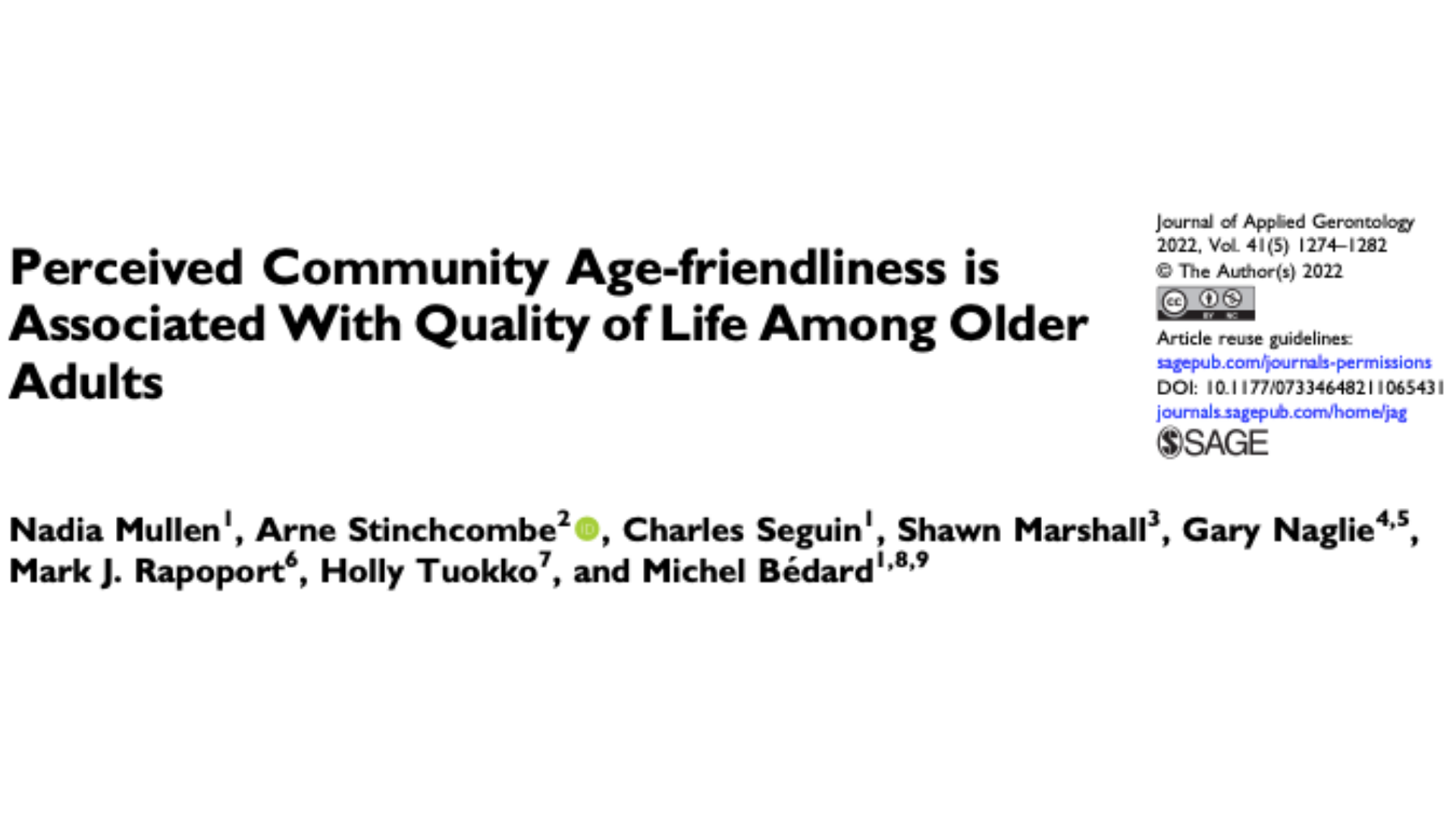Perceived Community Age-friendliness is Associated With Quality of Life Among Older Adults

Abstract:
We examined the positive association between perceived community age-friendliness and self-reported quality of life for older adults. A total of 171 participants, aged 77–96 years, completed a mail-in questionnaire package that included measures of health (SF-36 Physical), social participation (Social Participation Scale), community age-friendliness (Age-Friendly Survey [AFS]), and quality of life (WHO Quality of Life). Hierarchical regression models including age, gender, driving status, finances, health, social participation, and AFS scores explained 8 to 21 per cent of the variance in quality of life scores. Community age-friendliness was a statistically significant variable in all models, accounting for three to six and a half per cent of additional variance in quality of life scores. Although the proportion of variance explained by age-friendliness was small, our findings suggest that it is worthwhile to further investigate whether focused, age-friendly policies, interventions, and communities could play a role towards successful and healthy aging.
READ MORE HERE
-
By
-
Published
Mar 03, 2022
-
Subject Area
- Transportation
- Health & Wellness - Cognitive & Mental
- Social Connectedness & Social Isolation
-
Audience
- Service Providers (Non-profits, Community Organizations, Local government)
- Government
- Health Authorities
- Funders
- Academics
-
Category
Newsletter
Sign up for the Healthy Aging CORE Alberta e-news to keep up-to-date with activity from the platform and the Community-Based Seniors Services (CBSS) sector across the province.
